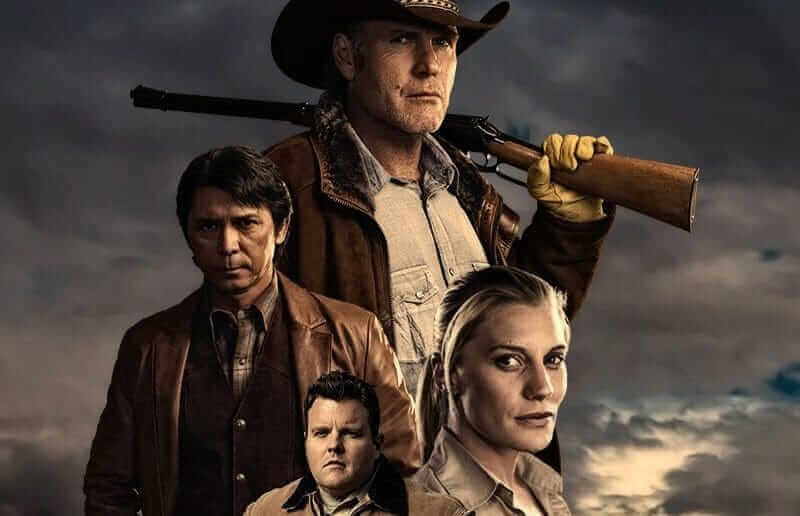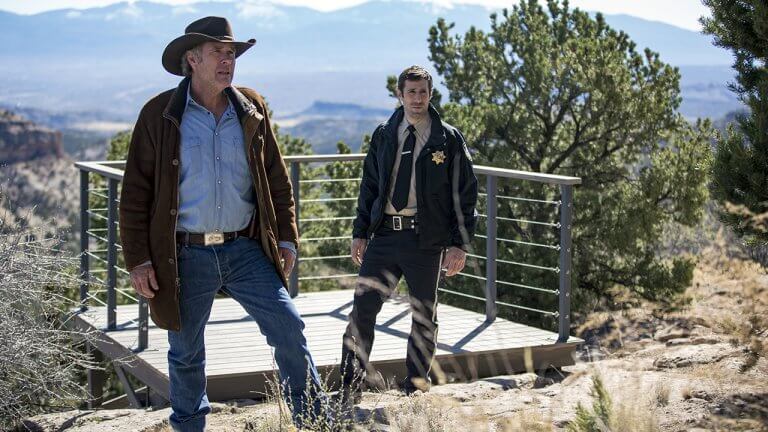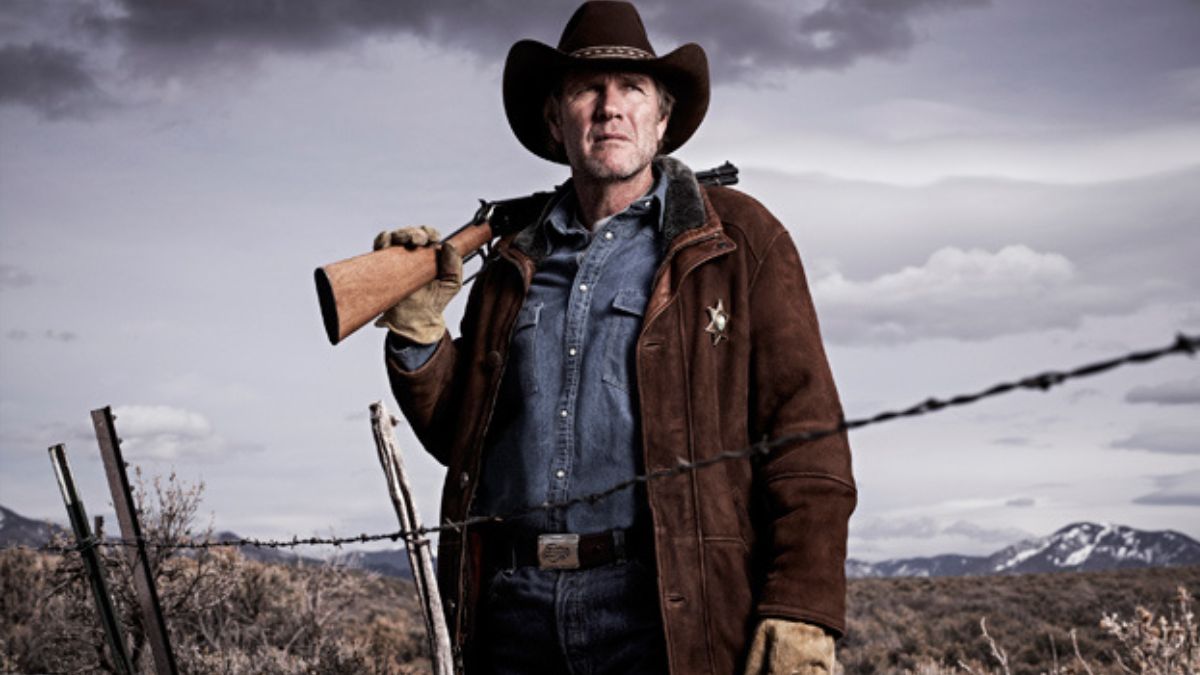Gunsmoke 2 (2025)
Gunsmoke 2 (2025) is a sweeping, emotional, and fiercely authentic return to the world of Dodge City — a modern Western revival that honors the legendary 20-year television series while carving out a powerful new chapter for contemporary audiences. Directed by Taylor Sheridan (

The story begins in 1895, two decades after Matt Dillon last walked the dusty streets of Dodge. The West has changed: the railroad has tamed the frontier, lawmen are being replaced by bureaucrats, and the gunslingers who once ruled the plains are relics of another era. Dillon, long retired and living alone in the New Mexico Territory, receives a letter from Kitty Russell’s niece (played by Jessica Chastain), informing him that Dodge City is in trouble. A ruthless cattle baron named Silas Mercer (Jeff Bridges) has seized control of the town through corruption, intimidation, and violence — turning it into a haven for outlaws and profiteers. When Dillon learns that Mercer’s men have murdered the town’s new marshal, he saddles up one last time and rides back into Dodge.
His return sets the tone for a story steeped in melancholy and resolve. The Dodge he once knew is unrecognizable — the saloon polished, the church boarded up, and the townsfolk too scared to stand up. Yet beneath the dust and decay, a few old allies remain. Doc Adams’s son, Dr. Jacob Adams (Jesse Plemons), now runs the infirmary, weary of fixing bullet wounds for cowards. Festus’s grandson, young Eli (Cole Hauser), works as a ranch hand with dreams of wearing a badge. Together, they form a ragtag posse with Dillon at the helm — men caught between old values and a new, lawless order.

As Dillon confronts Mercer, Gunsmoke 2 becomes a battle of wills between two titans — one who believes law must serve the people, and another who believes the strong should rule the weak. Mercer’s enforcers, led by the cold-blooded gunslinger Wyatt Cain (Boyd Holbrook), bring modern weaponry and tactics to bear, turning Dodge into a battlefield. Sheridan’s direction turns each confrontation into a meditation on morality — violence not as spectacle, but as consequence. Sam Elliott’s performance is towering: weathered, wise, and haunted by every man he’s ever killed. His gravelly voice and weary eyes give Dillon a gravitas that feels earned through decades of silence and sacrifice.
The cinematography by Ben Richardson captures the sweeping, mournful beauty of the dying West — golden plains, ghost towns, and sunsets that feel like farewells. The score, by Brian Tyler, merges classic Western strings with modern tones of tension and sorrow, echoing Ennio Morricone while finding something entirely new. Every frame hums with authenticity: dirt, blood, and the slow rhythm of a man reclaiming his purpose. And yet, the film is not without warmth — the camaraderie among Dillon’s makeshift deputies and the flickers of humor remind audiences that even in a dying world, decency endures.
In the film’s climactic showdown, Dillon and Mercer face off in the very street where the legend of Gunsmoke began. The duel is quiet, stripped of theatrics — two old men measuring the cost of their choices. When the smoke clears, Dillon holsters his weapon for the final time. Instead of triumph, there’s peace. He hands his badge to Eli, symbolizing the passing of an era — from the old law to the new. As the town gathers, Kitty’s niece tells him, “You didn’t just bring back the law, Marshal — you reminded them what it meant.”

The closing moments show Dillon riding out alone into the prairie, his silhouette fading against the rising sun, while the classic Gunsmoke theme plays softly in the background. His voice narrates the final words: “A man don’t choose to be a lawman. He just answers when justice calls — and one day, it stops calling.”
Longmire – Season 7 (2025)

Longmire – Season 7 (2025) marks the long-awaited return of the beloved neo-Western crime drama, resurrecting the stoic sheriff and his world of rugged justice for one final, emotionally charged chapter. Developed once again by John Coveny and Hunt Baldwin, with Robert Taylor reprising his iconic role as Walt Longmire, the new season picks up several years after the events of Season 6 — exploring redemption, legacy, and the question of whether a man can truly leave behind the life that defined him.
The story opens in Absaroka County, Wyoming, where a decade of uneasy peace has settled over the wide plains. Walt Longmire has retired from law enforcement, living quietly on his ranch with Vic Moretti (Katee Sackhoff), now his longtime partner in both life and love. Their world is calm but not content — Vic wrestles with the ghosts of her past cases, while Walt finds himself restless, haunted by dreams of unresolved wrongs and the steady encroachment of corporate power on the Wyoming frontier. When a mysterious murder occurs on Cheyenne land — a tribal activist found dead under suspicious circumstances — Walt is drawn back into a world he thought he’d left behind.
The crime quickly reveals deeper fractures beneath the surface. Henry Standing Bear (Lou Diamond Phillips), still running The Red Pony bar and serving as a cultural bridge between communities, warns Walt that this case isn’t just another killing — it’s the spark in a powder keg. A private energy company, backed by out-of-state interests, has been drilling near sacred tribal ground, stirring tension between the Cheyenne Nation and local ranchers. As Walt investigates, he uncovers a web of corruption, cover-ups, and disappearances that lead back to powerful men who view the land — and its people — as expendable.

What follows is classic Longmire — quiet intensity punctuated by bursts of violence and moral reckoning. Walt, now slower but wiser, must confront the limits of his own code in a world that no longer believes in simple justice. Vic, now a lieutenant in the sheriff’s department, struggles to balance her loyalty to Walt with her duty to the law. Their relationship deepens into something raw and tender — two broken souls bound by loyalty and loss. Henry’s role grows profoundly spiritual this season; his story becomes one of healing, identity, and the painful cost of wisdom.
The season also brings back familiar faces: Ferg (Adam Bartley), now the sheriff of Absaroka County, finds himself torn between political pressure and the example of his mentor. Cady Longmire (Cassidy Freeman), now a prominent attorney and advocate for Native rights, fights to protect the land her father once defended with a badge. Her growing alliance with the tribal council — and her moral clash with the energy company’s legal team — puts her directly in the crosshairs of those who would destroy everything the Longmires have stood for.
Visually, the series remains as breathtaking as ever — sweeping shots of Wyoming’s mountains and valleys bathed in golden light, contrasting the serenity of nature with the brutality of human greed. The cinematography emphasizes silence and solitude: long takes of Walt riding alone across the plains, or standing beneath the wide-open sky, his weathered face framed against gathering storms. The score by David Buckley returns, layering mournful strings and subtle percussion to create a soundscape that feels both timeless and tragic.

In the gripping finale, Walt uncovers proof that the company’s CEO — a former state senator — orchestrated multiple murders to cover up environmental crimes. The final showdown takes place on the same ridge where Walt first found peace years ago, now transformed into a battleground for the soul of Wyoming. When the dust settles, justice is served, but at a cost: Henry is gravely wounded, Vic resigns from the department, and Walt, once again, finds himself alone on the land he swore to protect. In the closing moments, Walt writes in his father’s old journal, his voice steady and calm:

Longmire – Season 7 (2025) ends not with action, but with grace — Walt standing by the fence line at sunrise, watching wild horses run across the prairie. The camera pulls back slowly, the sky burning gold, as the iconic theme swells one last time. A story about justice, family, and the endurance of the human spirit, the final season closes the book on one of television’s most quietly profound heroes — a man who learned that true strength lies not in the gun you carry, but in the peace you finally make with yourself.





